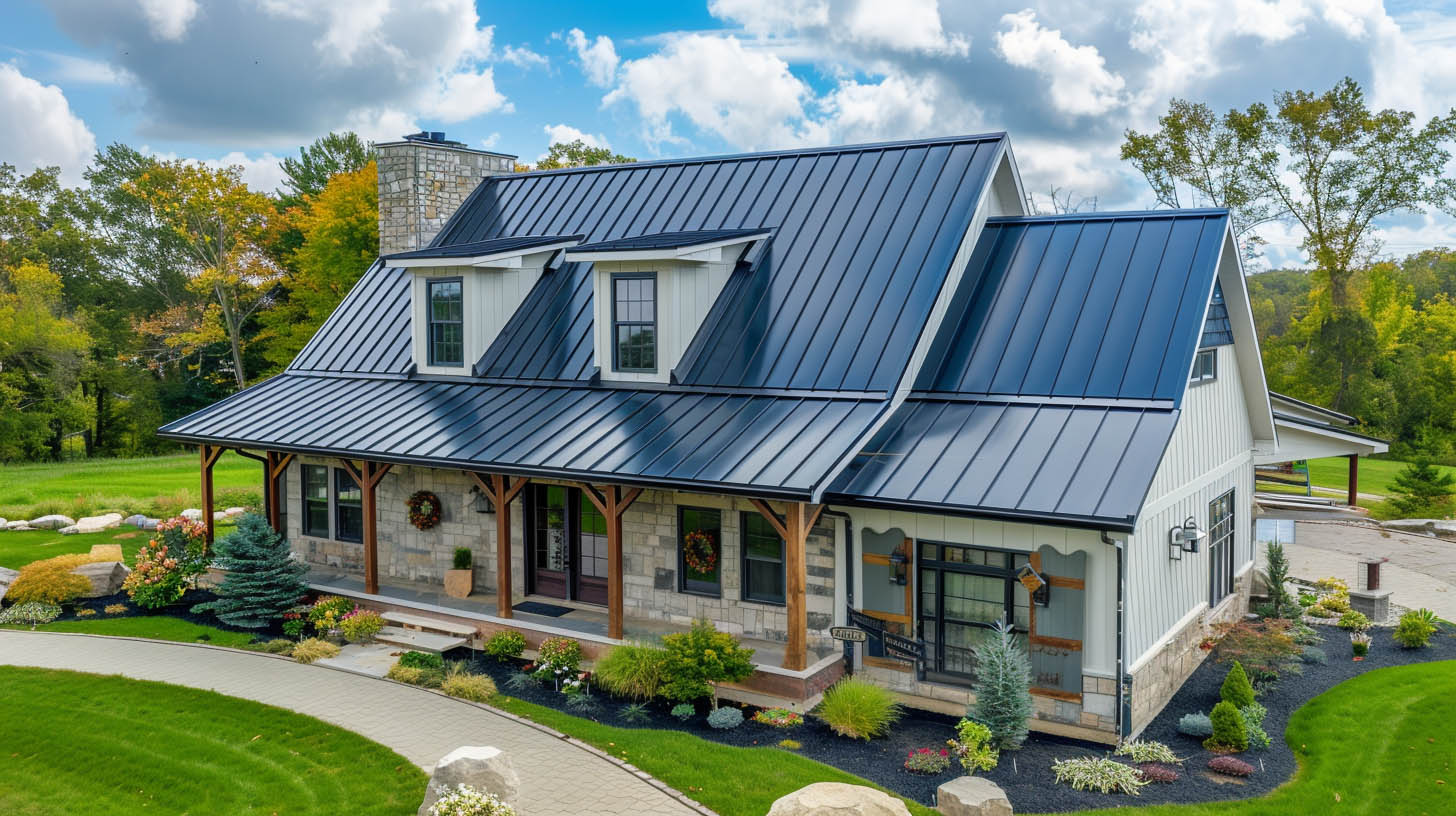Choosing the right gauge for metal roofing is crucial for ensuring durability, cost-efficiency, and appropriate protection for your home. Here’s an essential guide to understanding metal roofing gauges and how to select the best option for your needs.
What is a Metal Roofing Gauge?
The gauge of metal roofing refers to the thickness of the metal sheets used. Common gauges for metal roofs include 22, 24, 26, and 29, with lower numbers indicating thicker metal. The choice of gauge impacts the roof’s durability, aesthetic, and cost.
Types of Gauges and Their Applications
1. Thicker Gauges (22 to 24):
- Durability: These gauges offer superior durability and are less prone to denting from physical impact or harsh weather conditions.
- Application: Ideal for buildings in areas with severe weather conditions, such as high winds, hail, or heavy snowfall.
- Cost: Generally more expensive due to the increased material thickness and durability.
2. Thinner Gauges (26 to 29):
- Cost-Effectiveness: These are more economical and are sufficient for areas with milder weather.
- Application: Suitable for residential buildings where extreme weather is not a common concern.
- Considerations: While cost-effective, they may not offer the same level of durability and protection as thicker gauges.
Factors Influencing Gauge Selection
1. Environmental Conditions:
- Weather: Areas prone to severe weather conditions require thicker gauges to withstand potential damage.
- Sun Exposure: Buildings that receive extensive sun exposure might benefit from thicker gauges due to potential thermal expansion and contraction.
2. Structural Requirements:
- Span Between Supports: Buildings with larger spans between supports may require thicker metal to prevent sagging.
- Weight Considerations: Thicker gauges are heavier, which might require additional structural support, especially in retrofit applications.
3. Aesthetic and Functional Preferences:
- Appearance: Thicker gauges tend to have a more pronounced profile, which can be a stylistic choice for some designs.
- Longevity: Thicker metal roofs generally last longer, making them a better long-term investment for some properties.
Cost Considerations
While thicker gauges offer increased durability and longevity, they are also more expensive both in terms of material costs and potentially higher installation costs due to their weight. Homeowners must balance their budget with their need for durability and the specific conditions their roof will face.
Conclusion
Selecting the correct gauge for metal roofing is a critical decision that affects the roof’s performance, durability, and overall cost. Homeowners should consult with professional roofing contractors like Trojan Roofing to determine the best metal gauge for their specific needs, considering factors such as local weather conditions, structural requirements, and budget. Proper selection ensures that the roof will provide lasting protection and value for the home.
If you want to know more about The Importance of Roof Flashing, click here.

